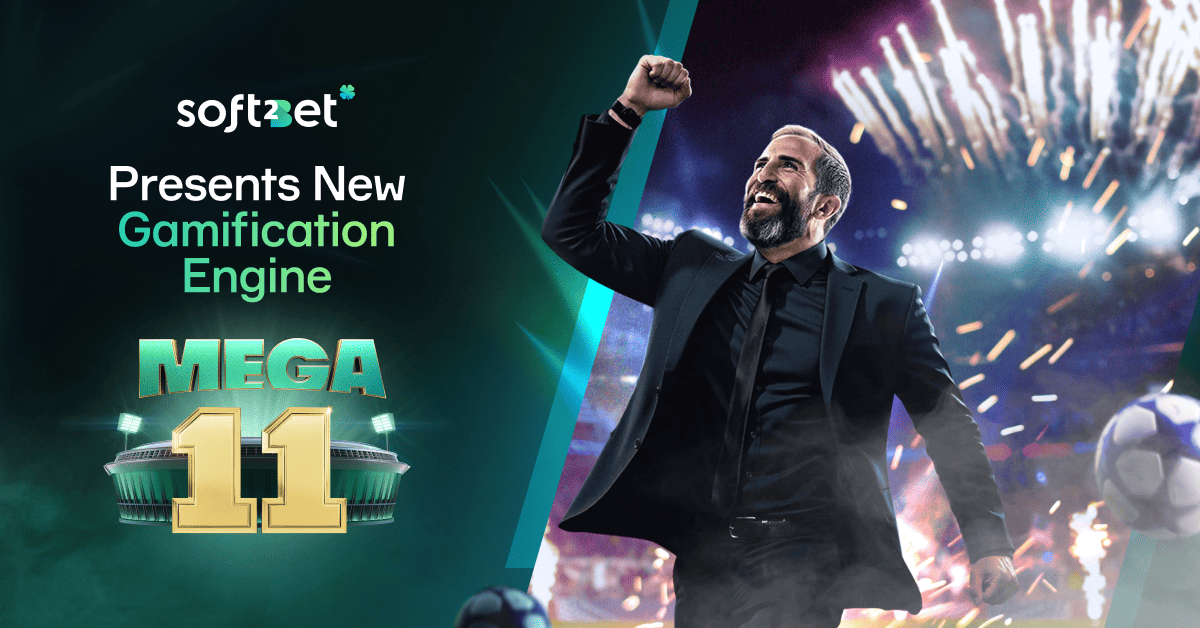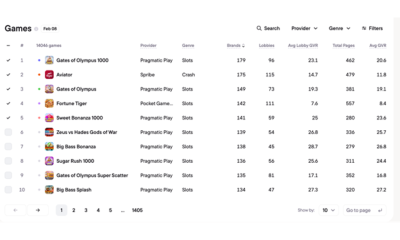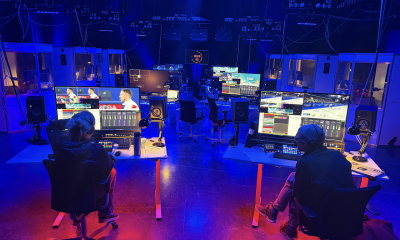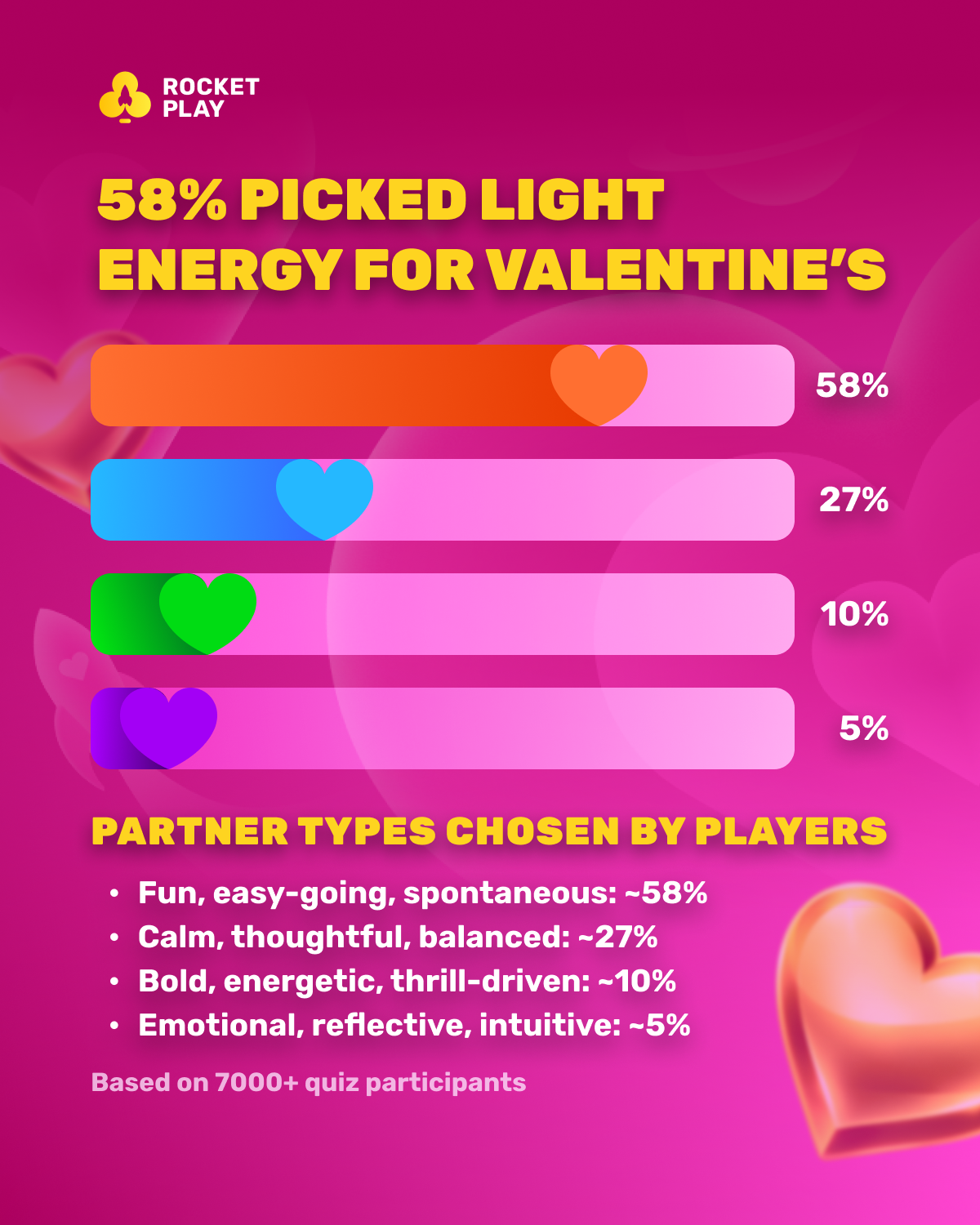Gaming
Flexion Partners with Xiaomi to Bring More Value to Global Users and Game Developers

Android game developers will as of today be able to reach millions of new users as Flexion, the games marketing company adds Xiaomi’s official proprietary app store, GetApps, to its suite of alternative marketplaces.
Flexion already offers game developers distribution and marketing services giving them easy access to alternative app stores and allowing them to build revenue and audiences quickly. The partnership with Xiaomi will bring significant opportunities to games in the Flexion portfolio.
“Xiaomi is among the top mobile device suppliers in many markets, such as India and Europe,” says Jens Lauritzson, Flexion’s CEO. “They have a truely global reach. Importantly for our game developers, many of Xiaomi’s smartphones focus on young people, especially geeks and gamers, which creates an ideal user base for game developers.”
Flexion’s strategy is to grow the distribution channels it offers developers, so they are no longer reliant on just limited choices. Existing clients see an average 10% boost in revenue through the platforms that Flexion helps them reach. Developers get an additional revenue stream with no upfront costs and very little effort.
The partnership with Xiaomi is a logical next step in Flexion’s strategy. Xiaomi is one of the world’s leading smartphone companies. According to Canalys, the company’s market share in terms of smartphone shipments ranked No. 3 globally in the first quarter of 2023. In March 2023, the MAU of MIUI reached approximately 595 million globally. GetApps already connects developers with millions of users and continues to grow, seeing notable successes in the most lucrative regions. Xiaomi’s International Internet Business Department announced its “Go Global” strategy for the year of 2023 at MWC in Barcelona, which also marked the expansion of GetApps towards more markets worldwide.
“We’re glad to be partnering with Flexion and delighted to welcome new games into Xiaomi’s GetApps. We think their attitude to the games market is spot on.” says Chan Liu, General Manager, International Internet Business Department, Xiaomi. “Our cooperation integrates the advantages of Flexion’s deep understanding of the market and Xiaomi’s system-level support as a smartphone OEM, which aims to create an ecosystem for the game industry and bring true values to developers and Xiaomi users worldwide.”
Flexion has already soft launched Gods & Glory from DECA Games on Xiaomi and is now fully integrated with the Xiaomi platform and distribution service. Using the Xiaomi distribution service will benefit developers as payout rates that facilitated through are generally higher than in other app distribution platforms, says Jens.
The time has never been better for developers to think about a multiple store approach. Earning revenue from a single app store with traditional user acquisition is becoming more difficult, as privacy and competition concerns start to bite. The European Union’s Digital Marketing Act (DMA), for example, will force tech giants to allow alternative app stores into their ecosystems. A game that is on multiple app distribution platforms will get more exposure no matter what market users prefer.
“We’re predicting a spike in alternative store audiences as consumers find better value through more competitive offers in new stores such as GetApps,” says Jens. “We’re giving developers a newfound freedom, making it far easier to launch, scale and profit from their games.”
“We will help Xiaomi grow its offering by bringing great games to the channel,” he goes on. “Flexion has the technology to do this, together with people who have the necessary expertise and experience. The platform grows and the games grow both in terms of audience and revenue. Everyone wins with Flexion’s approach.”
Gaming
Soft2Bet Introduces MEGA11, a Football Manager Experience Designed to Elevate Sportsbook Activity

Soft2Bet has revealed the debut of MEGA11, a football management game aimed at enhancing sportsbook interaction and improving player loyalty. Acknowledging that football manager and fantasy games rank among the most favored genres with the longest typical gameplay durations, MEGA11 provides a progression-oriented and captivating football manager experience focusing on fantasy league team construction, allowing players to tactically oversee their own teams and make important choices while competing in leagues and matches.
Users of sportsbooks are inherently used to waiting before making their next wager. That inactivity naturally leads to a decrease in daily engagement, even among bettors who are very focused on football. MEGA11 addresses this issue by providing users with a football management game seamlessly connected to the sportsbook experience. Rather than waiting for the upcoming kickoff, players can remain engaged by forming their team, modifying lineups, and battling in their personal matchups or leagues. This establishes a distinctive two-way interaction cycle, effortlessly integrating real-money wagering with social, engaging gameplay, transforming these calmer times into organized activity with defined objectives, advancement, and a motivation to come back.
MEGA11 is developed as an independent game featuring its own soft-currency system, without any direct links to sportsbook deposits or casino operations. The main experience is free-to-play, enabling players to advance at their own speed. For players seeking to advance quickly or enhance their team, MEGA11 provides optional purchases, such as more powerful player cards and boosters that speed up progress and offer a strategic advantage.
The engagement of the sportsbook is fueled by a straightforward, quantifiable mechanism. Each wager allows players to accumulate points that enhance their advancement in the football manager game. This advancement, consequently, activates sportsbook bonuses, actively encouraging ongoing involvement and strengthening consistent engagement. Advancement is organized via a five-level loyalty and gamification framework that reflects a football career trajectory: Beginner, Amateur, Professional, World Class, and Legend. The tiering aims to maintain motivation over time, providing a consistent feeling of progress that fosters longer-term retention instead of brief spurts of engagement.
The new engine enhances Soft2Bet’s larger MEGA portfolio, which currently features mechanics like MEGA Chance, MEGA Round, and MEGA Clawee. It further enhances Soft2Bet’s sportsbook offering with instant payouts, 24/7 support, and over 200 pre-match football markets, by introducing a perpetual football format designed to maintain fan engagement beyond the live match calendar.
The design of the product continues to prioritize player protection and compliance. MEGA11’s soft-currency, non-deposit model promotes secure and compliant interactions, emphasizing entertainment and advancement while adhering to responsible gaming standards in regulated regions.
Yoel Zuckerberg, CPO at Soft2Bet, stated: “MEGA11 is built to keep football fans engaged between matchdays, pairing a manager-style progression loop with a soft-currency model that supports compliant, long-term sportsbook loyalty. Football manager games are renowned for having the highest player immersion and longest session times in the industry. By bringing this experience to our partners, we are combining real betting with social gameplay to deliver authentic player experiences that resonate with fans and drive sustainable engagement.”
The introduction of MEGA11 enhances Soft2Bet’s emphasis on product-driven engagement, merging game design, loyalty strategies, and a robust regulatory framework to assist operators in achieving more reliable retention during the football season. The technology has received significant industry awards and is eliciting a strong positive reaction from players, confirming its influence on engagement and long-term value generation.
The post Soft2Bet Introduces MEGA11, a Football Manager Experience Designed to Elevate Sportsbook Activity appeared first on Eastern European Gaming | Global iGaming & Tech Intelligence Hub.
Gaming
58% of respondents like the“warmy” archetype. Rocket Match by RocketPlay became “ Valentine’s Tinder in Gaming”.

This Valentine’s, RocketPlay tested a playful idea: players who seek thrills in gaming don’t necessarily want intensity in everything — including relationships. Instead of asking users to pick a “perfect partner,” RocketPlay launched Rocket Match, a fast, flirty quiz that matches players with a vibe: Bold, Sunny, Dreamy, or Adventurous.
Early Results Flip the Stereotype
Around 58% of participants matched with the Sunny archetype — defined by warmth, charm, and easy-going fun. The experiment suggests that when it comes to Valentine’s, RocketPlay’s community prefers light-hearted connection over drama or high stakes.
What Rocket Match Is
Rocket Match is a Valentine’s matchmaking quiz built inside the RocketPlay Universe. Players answer five simple, no-wrong-answer questions and instantly discover their match vibe.
The goal: move away from typical Valentine’s content that swings between overly serious romance or clichéd tropes. Rocket Match keeps it flirty, playful, and moment-focused, letting players discover a vibe rather than a label.
The four vibes include:
-
Bold – confident, high-energy, loves bigger sparks
-
Sunny – easy-going, playful, social, effortlessly charming
-
Dreamy – soft, romantic, focused on atmosphere and emotion
-
Adventurous – playful risk-taker, spontaneous, curious
Community Insights from Rocket Match
The quiz quickly gained traction, with 7,000+ completions, revealing a strong preference: Sunny, the archetype defined by warmth, lightness, and charm.

Alex Martin, PR Lead at RocketPlay, said:
“What we liked most about Rocket Match is how clearly it captured the mood people actually want on Valentine’s. It wasn’t about labels or big statements — it was about light energy, easy chemistry, and a feel-good kind of connection. That’s the vibe we try to build across the brand: simple to join, fun in the moment, and positive without the drama.”
Why It Matters
Rocket Match was more than a Valentine’s gimmick. It offered a snapshot of what RocketPlay’s community enjoys most: light energy, playful interaction, and feel-good connections. By turning a pop-culture moment into a small experiment, RocketPlay gained insight into player preferences, informing how the brand continues to design engaging, fun, and positive experiences.
The post 58% of respondents like the“warmy” archetype. Rocket Match by RocketPlay became “ Valentine’s Tinder in Gaming”. appeared first on Eastern European Gaming | Global iGaming & Tech Intelligence Hub.
Gaming
58% of respondents like the“warmy” archetype. Rocket Match by RocketPlay became “ Valentine’s Tinder in Gaming”.

This Valentine’s, RocketPlay tested a simple idea: people who come to iGaming for thrill don’t necessarily want the same intensity in everything — including relationships. Instead of asking players to choose a “perfect partner,” we launched Rocket Match, a fast, playful quiz that matches players with a vibe — bold, sweet, dreamy, or adventurous.
Early results flipped the stereotype. Around 58% of participants matched with the same vibe — built around warmth, charm, and easy fun — suggesting that when it comes to Valentine’s, our community prefers light-hearted connection over drama or risk.
What Rocket Match is
Rocket Match is a Valentine’s matchmaking quiz built as a small cosmic adventure inside the gaming RocketPlay Universe. Players answer 5 light questions — no right or wrong answers — and instantly unlock a Rocket Match that compliments themself. The idea was simple: Valentine’s content online often swings between two extremes — overly serious romance or pure cliché. Rocket Match was created to do something different: keep it flirty, keep it playful, and let players discover a vibe that feels like a moment, not a label.
There were 4 vibes to match with:
Bold — confident, high-energy, loves a bigger spark and bolder choices.
Sunny — easy-going, lighthearted, funny, good communicator
Dreamy — softer, romantic, drawn to atmosphere and emotion.
Adventurous — playful risk-taker energy; spontaneous, curious, and always up for something new.
The lightweight Valentine’s experiment quickly gained traction, with 7,000+ players completing the quiz. The unexpected value came after: the answers revealed a clear preference in what players wanted Valentine’s to feel like — and that insight became the story.
Across responses, around 58% of participants landed on the same Rocket Match vibe — the “sunny” archetype. It’s defined by warmth, lightness, and easy charm: playful, social, and effortless to be around.
What it says about RocketPlay’s community
Rocket Match offered a clear read on the kind of Valentine’s energy players gravitate toward — and it’s lighter than the usual “high-stakes romance” stereotype. As Alex Martin, PR Lead, puts it: “What we liked most about Rocket Match is how clearly it captured the mood people actually want on Valentine’s. It wasn’t about labels or big statements — it was about light energy, easy chemistry, and a feel-good kind of connection. That’s the vibe we try to build across the brand: simple to join, fun in the moment, and positive without the drama.”
What started as a fun Valentine’s experiment quickly became a snapshot of what the community enjoys most: light energy, easy chemistry, and feel-good connection. Valentine’s was simply the right moment to test a playful, pop-culture format — and see what kind of “match” people gravitate toward.
The post 58% of respondents like the“warmy” archetype. Rocket Match by RocketPlay became “ Valentine’s Tinder in Gaming”. appeared first on Americas iGaming & Sports Betting News.
-

 ACMA5 days ago
ACMA5 days agoACMA Blocks More Illegal Online Gambling Websites
-

 Aurimas Šilys5 days ago
Aurimas Šilys5 days agoREEVO Partners with Betsson Lithuania
-

 CEO of GGBET UA Serhii Mishchenko5 days ago
CEO of GGBET UA Serhii Mishchenko5 days agoGGBET UA kicks off the “Keep it GG” promotional campaign
-

 Canada4 days ago
Canada4 days agoRivalry Corp. Announces Significant Reduction in Operations and Evaluation of Strategic Alternatives
-

 Latest News4 days ago
Latest News4 days agoTRUEiGTECH Unveils Enterprise-Grade Prediction Market Platform for Operators
-

 Central Europe5 days ago
Central Europe5 days agoNOVOMATIC Once Again Recognised as an “Austrian Leading Company”
-

 AI5 days ago
AI5 days ago2026 Rewards AI Capability, Not AI Talk – HIPTHER Prague Summit Unveils the Next-Era HIPTHER Academy
-

 Firecracker Frenzy™ Money Toad™4 days ago
Firecracker Frenzy™ Money Toad™4 days agoAncient fortune explodes to life in Greentube’s Firecracker Frenzy™: Money Toad™
































